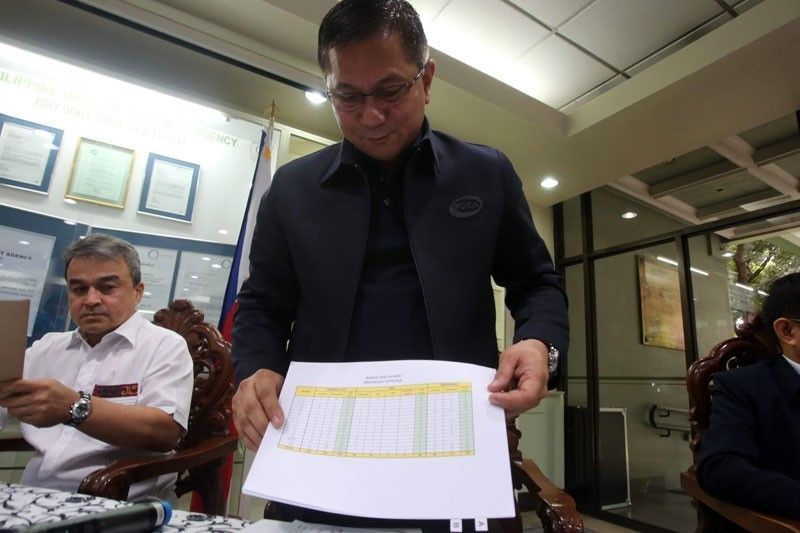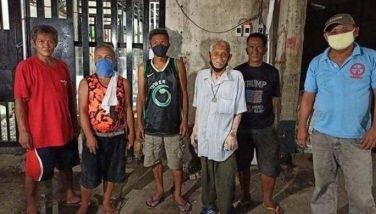IBP: 'Drug lists' shame prosecutors who follow the Constitution

MANILA, Philippines — The Integrated Bar of the Philippines has expressed concerns on the “public shaming” of prosecutors who only follow court rules on the chain of custody in drug-related cases.
IBP president Abdiel Dan Fajardo said in a statement that the national lawyers' group encourages prosecution of those allegedly involved in the illegal trade, including those members of the Philippine bar.
But the 40,000-strong group of lawyers assailed the so-called “narco-list,” as it “publicly shames prosecutors who dismiss drug complaints for insufficiency of evidence, and judges who acquit drug suspects on constitutional grounds.”
Philippine Drug Enforcement Agency Director Aaron Aquino said that there are 13 judges and 10 prosecutors included in the list of personalities suspected to have links with narcotics trade.
READ: Also on narco list: 13 judges, 10 prosecutors
Aquino, however, said that they would not be releasing their names since their validation efforts are focused on case buildup against the 46 politicians who are said to have been named as respondents in administrative cases at the Office of the Ombudsman.
Copies of the compaints have not been released to media, although the Department of the Interior and Local Government has said raps have been filed.
Criminal or drug-related raps have yet to be filed against candidates whom President Rodrigo Duterte has named from a list.
PDEA fustrated at dismissed cases
Aquino also expressed his frustrations in dealing with the Judiciary, when drug-related complaints get dismissed.
The PDEA chief cited one instance where the agency was accused of planting evidence, which led to the acquittal of the daughter of a convicted drug trafficker in Manila.
In October 2018, a Manila court acquitted Diana Yu Uy, daughter of "drug queen" Yu Yuk Lai , as it held that evidence was not enough to convict her and the search warrant used against her was “invalid for lack of probable cause.”
But Fajardo said: “Government agents are not licensed to perverse or relax constitutional standards on buy-bust and search and seizure operations, and a defeat in the legal arena on such basis must not be interpreted as drug coddling or protection.”
He stressed that prosecutors should be commended, and not public shamed, for pointing out flaws in due proceedings such as:
- Material inconsistencies in the testimonies of prosecution witnesses, mostly police officers involved in the apprehension and investigation of the accused;
- Failure to comply with the requirements of Section 21 of the Comprehensive Dangerous Drugs Act regarding chain of custody;
- Unexplained lapses of time between confiscation, marking, inventory and turn-over of drug specimen
- Discrepancies in testimonies in such matters as time or place or manner of apprehension
The Supreme Court has released rules for authorities, prosecutors and courts over drug-related cases in a bid to help decongest court dockets.
In a ruling dated Sept. 4, 2018, the high court laid down a a mandatory policy in arrests and seizures related to illegal drugs:
- In the sworn statements/affidavits, the apprehending/seizing officers must state their compliance with the requirements of Section 21 (1) of RA 9165 or the Comprehensive Dangerous Drugs Act of 2002, and its Implementing Rules and Regulations (IRR);
- In case of non-observance of the provision, the apprehending/seizing officers must state the justification or explanation therefore as well as the steps they have taken in order to preserve the integrity and evidentiary value of the seized/confiscated items;
- If there is no justification or explanation expressly declared in the sworn statements/affidavits, the investigating fiscal must not immediately file the case before the court. Instead, he or she must refer the case for further preliminary investigation in order to determine the (non) existence of probable cause; and
- If the investigating fiscal filed the case despite such absence, the court may exercise its discretion to either refuse to issue a commitment order (or warrant of arrest) or dismiss the case outright for lack of probable cause in accordance with Section 5, Rule 112, Rules of Court.
The said policies will “help weed out early on from the courts’ already congested docket any orchestrated or poorly built-up drug-related cases,” said the SC.
RELATED: SC acquits 3 drug convicts due to evidence mishandling
- Latest
- Trending



























